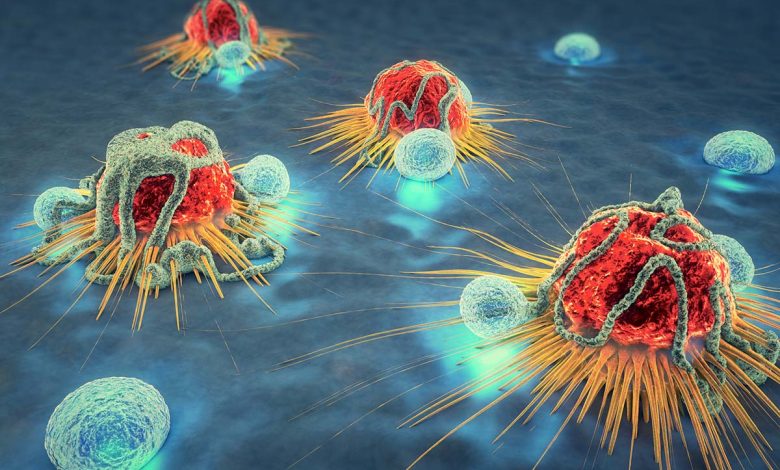
Exploring TIL Therapy: A Revolutionizing Cancer Treatment
In the past few decades, cellular-based immunotherapies have been broadly used for the treatment of cancer patients. Tumor-infiltrating lymphocyte therapy (TIL) is a new strategy that has been adopted to fight against cancer. The therapy involves harvesting infiltrated lymphocytes from tumors and growing them on a cultural medium to amplify them and infuse them into patients. It offers superior target specificity and low off-target toxicity—enabling it to be used for solid tumors.
Tumor-infiltrating lymphocytes consist of a heterogeneous population of lymphocytes, namely T-cells, natural killer cells, and B-cells that are isolated from the tumors. If patients receive repetitive infusions of TILs combined with chemotherapy, treatment of cancer will become more convenient. Various research and clinical trials are showing validated results of TIL therapy in the treatment of cancer. The ongoing trials and initiatives for finding a solution to treat solid tumors have driven the TIL therapy market is anticipated to grow at a CAGR of 40% in the future.
What is TIL Therapy?
The T-lymphocytes are a crucial part of the immune system as they help to fight against infections that enter into the body, and often possess the ability to kill tumor cells. In TIL therapy, tumor-infiltrating lymphocytes that are found on tumor sites are isolated and grown in the laboratories to increase their quantity and then infuse back into the tumor site to initiate killing action. The therapy is under clinical trials and has been tested to treat melanoma, carcinoma, lung cancer, solid tumors, and genitourinary cancers.
TIL Therapies vs CAR-T Therapies: What is the Difference?
CAR-T cell therapy and TIL therapies are both a form of cellular immunotherapies used for the treatment of cancer. TIL therapies aim to strengthen the immune system of the patient so it can destroy the tumor cells by binding at the specific target site by following natural mechanisms. Both therapies share similar principles and involve the collection of immune cells from the patient body. TIL therapy harness T-cell known as Tumor-infiltrating lymphocytes that are present on the tumor cells; on the other hand, CAR-T cells are a modified form of T-cells present in the blood.
In both therapies, the T lymphocytes are grown and expanded in laboratories and then infused into the patient’s body to trigger a response. While the therapies follow similar principles and mechanisms of action, these therapies have two common differences:
- Tumor-infiltrating lymphocytes are polyclonal; different forms of T-cell clones attack tumor antigens.
- CAR-T cell therapy involves genetically modified T-cells that attack a single antigen targeted on the tumor cells. On the other hand, tumor-infiltrating lymphocytes are not genetically modified.
How Does TIL Therapy Work in Cancer Treatment?
Since the tumor-infiltrating lymphocytes are taken from the tumor cells, they have existing target sites on tumor cells. A stepwise procedure is followed to use tumor-infiltrating lymphocytes in cancer treatment therapy that includes:
- The unaltered tumor-infiltrating lymphocytes have been isolated from the tumor, which is removed surgically.
- The isolated tumor-infiltrating lymphocytes are then grown and cultured in laboratories on growth media along with interleukin-2 (IL-2) (a form of protein that supports the growth of Tumor-infiltrating lymphocytes). Ideally, the process will be completed in 4-6 weeks.
- Once the Tumor-infiltrating lymphocytes grow in billions, they are then infused back into the patient bodies.
- When the Tumor-infiltrating lymphocytes enter the body, it works similarly to the immune system and starts attacking cancer cells.
Before the infusion of tumor-infiltrating therapies, the patient may require additional chemotherapy sessions to make a pathway for Tumor-infiltrating lymphocytes to proliferate in the patient. In some cases, modified or engineered tumor-infiltrating lymphocytes are designed to enhance the capabilities to fight against cancerous cells. Several clinical trials are ongoing on TIL therapies and have shown positive responses in the treatment of cancer.
What Are The Advantages of TIL Therapies?
Tumor-infiltrating lymphocytes are commonly polyclonal cells having diverse receptors capable of determining a broad range of targeted associated antigen sites, making them ideal immunotherapy to treat solid tumors in patients. Furthermore, the TIL therapies have successfully overcome the risk of immune escape and tumor heterogeneity, ensuring positive outcomes in a clinical trial. In comparison to Chimeric antigen receptor (CAR-T cell therapy), TIL therapy helps to treat solid tumors having a high rate of mutation, such as melanoma. Some more significances of TIL therapies include:
- Tumor-infiltrating lymphocytes are tumor-specific, having the ability to target specific sites without affecting normal cells present around tumor cells.
- Tumor-infiltrating lymphocytes can target the tumor neoantigens present within the tumor microenvironment. Thus, there is no necessity to understand the targeted associated antigens and major histocompatibility complex to deliver therapy.
What is the Current Status of TIL Therapy in Cancer Treatment?
To date, TIL therapy clinical trials have shown successful outcomes in patients with melanoma. With positive outcomes of early-phase clinical trial studies, researchers may soon receive approval from the regulatory bodies. In August 2022, Ivoance Biotherapeutics became the first company to submit a rolling BLA application for Lifileucel for the treatment of patients with metastatic melanoma to the FDA. The TIL therapy has already reached the phase II clinical trial and is expected to receive approval by the end of 2023 or early 2024.
TIL Therapy: A Futuristic Approach
In conclusion, tumor-infiltrating lymphocyte therapy has shown unique significance in the treatment of solid tumors. The patients who are enrolled in the clinical trials are likely to have positive responses. Despite its significance, the tumor immunosuppressive microenvironment and isolation of the tumor-reactive T cells remain a challenge. To address those challenges, several companies have explored combined therapies and next generation TIL therapies, as well as genetically modified TIL therapies. In the meantime, the TIL therapies that are under clinical trial are advancing toward successful outcomes.
Read More: Stretch Therapist: How Can Stretch Therapy Help You?
About Roots Analysis
Roots Analysis is a global leader in the pharma/biotech market research. Having worked with over 750 clients worldwide, including Fortune 500 companies, start-ups, academia, venture capitalists, and strategic investors for more than a decade, we offer a highly analytical / data-driven perspective to a network of over 450,000 senior industry stakeholders looking for credible market insights. All reports provided by us are structured in a way that enables the reader to develop a thorough perspective on the given subject. Apart from writing reports on identified areas, we provide bespoke research/consulting services dedicated to serving our clients in the best possible way.



